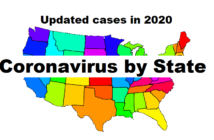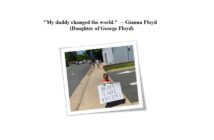December 2, 2010
Ines Rivera
Investigative Reporter
The Nation


 Standing at 6’1 and 215 pounds, Jay Aubin may be intimidating at first glance, but he quickly puts onlookers at ease as he begins to speak. He’s inviting and has a passion for American history that he eagerly shares — a passion influenced by his tour of duty in Iraq. His enthusiasm for anything historic flows off his tongue as he rattles off historical facts like a prize-winning Jeopardy player. His facts are tailored with care when he speaks about the topic he relishes and honors most: the military. Aubin considers himself lucky this holiday to be home for Christmas, but remembers spending many days and nights in Iraq during the holidays. “[In] 2008, I was home for Thanksgiving and Christmas, and I was here last year and this year.” When asked how he got through his most difficult times in Iraq, he credits his fellow service men. “You were never alone. You got fire fights and IEDs, roadsidebombs — these things would happen, but you were never alone. You always had your friends — the guy you worked with — and just knowing they were there was the hugest lift for me.”
Standing at 6’1 and 215 pounds, Jay Aubin may be intimidating at first glance, but he quickly puts onlookers at ease as he begins to speak. He’s inviting and has a passion for American history that he eagerly shares — a passion influenced by his tour of duty in Iraq. His enthusiasm for anything historic flows off his tongue as he rattles off historical facts like a prize-winning Jeopardy player. His facts are tailored with care when he speaks about the topic he relishes and honors most: the military. Aubin considers himself lucky this holiday to be home for Christmas, but remembers spending many days and nights in Iraq during the holidays. “[In] 2008, I was home for Thanksgiving and Christmas, and I was here last year and this year.” When asked how he got through his most difficult times in Iraq, he credits his fellow service men. “You were never alone. You got fire fights and IEDs, roadsidebombs — these things would happen, but you were never alone. You always had your friends — the guy you worked with — and just knowing they were there was the hugest lift for me.”
On this cold, windy night in Virginia at Fort Myer military base, Aubin stands in the dark and points out over the base toward Arlington Cemetery. He then displays his love of history and facts. “In Arlington [Cemetery] there are so many different stories and so many people that are buried there. That’s the fascinating part. Joe Louis, the boxer, is buried here. Abner Doubleday, the guy who invented baseball. The slaves that worked this plantation when Lee still owned this property with his wife. After they had been freed, some of them had stayed…and then they got buried here. This became a cemetery as a sign of disrespect to General Lee. The Union soldiers started burying their dead on his property near his house, so he didn’t want to come back. They basically made this into a cemetery up to that point.” He gives a small grin, indicating that he is also impressed with his knowledge.
As a member of the Light Infantry, Aubin was part of the 2007 Iraq Surge, a plan promoted by the Bush administration, which increased the number of troops deployed to Baghdad and the Al Anbar Province in order to strengthen security in the areas. After the 2007 surge, the number of troops in Iraq rose to above 60,000.
The Brookings Institution, a non-profit public policy organization, has recently updated its Iraq Index, which tracks reconstruction and security in the country. According to the Index, a total of 4,430 U.S. service men have lost their lives, and 31, 929 have been injured. The majority of these fatalities — 1,284 — have been soldiers younger than 22 years of age. The total Iraqi civilian fatalities are numbered at 113,980. On August 19, 2010 the last U.S. combat brigade left Iraq, yet 50,000 military personnel have remained on the ground involved in the transition process.
Aubin says it was hard being away from home, and the holidays were the most difficult times during his tour. “[In] 2007, I was gone the entire year. So, I spent no holidays with my family or friends. The two years before that I was stationed on the West Coast. It was quite difficult for me because of our training cycle, because we knew we were deploying, to get back home,” he states. He remembers how important his fellow soldiers were in surviving without his immediate family. His extended family consisted of his combat buddies, a band of brothers he still remembers fondly and keeps in touch with via telephone, emails, or Facebook. “The funny thing about being in a bad situation,” he says “…the near miss calls with the roadside bombs, and snipers taking shots at us. We always laughed at each other. When everything would calm down, we’d make fun of each other. That was a daily thing, making fun of each other and constantly picking on each other.”
Aubin recalls spending a Christmas away from his family during the middle of a war: “You didn’t realize it was the holidays. I was deployed to the Middle East, and they don’t celebrate Christmas, so you’d never see Christmas lights or trees. It was something you knew was going on, but that was a world away. You missed everyone, but at the same time you were with your family in the Middle East – the guys that I was serving with.” Stationed in a Muslim country brought many surprises, but he was particularly shocked to learn their connection with Jesus. “Almost every house I went into, they had posters of Mary and Jesus,” he says “even though they were Muslims. I asked — when I first got to Baghdad — a family why they had that, and they said that in their religion – Islam — Jesus was a great prophet, and that blew my mind. I had never known that Jesus was such a big force in Islam. That was strange to me, but interesting as well — more interesting than strange.”
Upon returning to the US, Aubin was hit by another reality, one very close to home. “The one thing I learned after being back was it’s harder on the people that are here more than it is on the people that are deployed,” Aubin says, “because when you are deployed you really don’t have time to think about Christmas. You don’t think of these things, because you just didn’t have time. That was a very difficult thing, realizing it caused a lot of other people grief — things that I had basically shut out while I was gone.”
In May 2010, the number of troops in Afghanistan surpassed those in Iraq for the first time. US numbers in Afghanistan are set to reach an estimated 98,000 after 30,000 military personnel arrive this December. With a new surge promoted by the President Obama administration, Aubin faces the reality of being deployed once again. Without hesitation, he asserted he’d go back to Afghanistan if asked to do another tour. “I would do Afghanistan,” he says. “I would not do Iraq again, because it’s over. We’re pulling out in a few months, and I do not want to be deployed unless it’s something serious.”
Since coming back from Iraq in 2008, Aubin has been working with the 3rd U.S. Infantry Regiment, also known as The Old Guard, which is the oldest active unit of the army infantry. The Old Guard carries out Standard Honor and Full Honor funerals in Arlington National Cemetery. They also carry out dignified transfers of fallen soldiers returning to the US and conduct ceremonies and events as representatives of the Army. In addition, the Old Guard defends and protects civil authorities, most notably the US President. “This is the only unit in the army that does this,” says Aubin. “We’re the only ones. You have to be Infantry to be 3rd Infantry Regiment, and if I wasn’t here I would still be one of the guys fighting.”
Aubin teaches new members of The Old Guard in the “indoctrination program,” but he was once the squad leader for the Casket Squad. He meticulously describes the scene of a military funeral in vivid detail, adding his role in helping bring closure to grieving families. “My men would have carried the casket to the grave, laid the casket down, taken the flag off the coffin and pulled it tight so the American flag was leveled. I would step out of the way. The priest or rabbi came in and gave the last rites. I would step back in at the head of the casket. The firing party would fire the 21-gun salute. “Taps” would be played. The flag would be folded by my team, which was six men. They would pass the flag down to me, and then I would walk over to the widow or the mother or the husband or the daughter or son, and give them the flag.”
For such a tough exterior, Aubin was not immune to the pain of fallen soldiers. He found listening “Taps” unbearable and too emotional. The playing of the bugle could get to Aubin, but it was even harder for him to see the children of fallen soldiers cry. His experiences as leader of the Casket Squad have undoubtedly left their mark on him. He recalls the grief of a mother he could not forget. “Families are never going to forget a loved ones funeral,” he says. “A woman once said she didn’t want the flag; she wanted her son when I was trying to give her the flag.”
Teaching the new members of the Old Guard has proved rewarding, but after he gets out of the army, Aubin looks forward to finishing his degree in public policy. He’ll be spending this coming Christmas at the beach with his family, including his brother who is also in the service.
“I don’t look at what I did as a sacrifice, but as a great chapter in my life I can share with others. This nation has sacrificed, especially monetarily, for what we have done. I would definitely thank the countless people who prayed for us, did a lot of community service for us. It’s just really great to be from a country where people do these things.”
Aubin faces the reality that many U.S. service men currently face — and will face in the coming months – the possibility of being deployed to Afghanistan. For now he’s focusing on his job and making future plans. Originally from North Carolina, Aubin now calls Virginia home. “I think it’s really imperative that you volunteer and do stuff for your community. I want to keep doing that for the rest of my life, doing things for the community. I don’t want to work for the Army once I get out. I just want to go home to Virginia and see where that takes me.”



